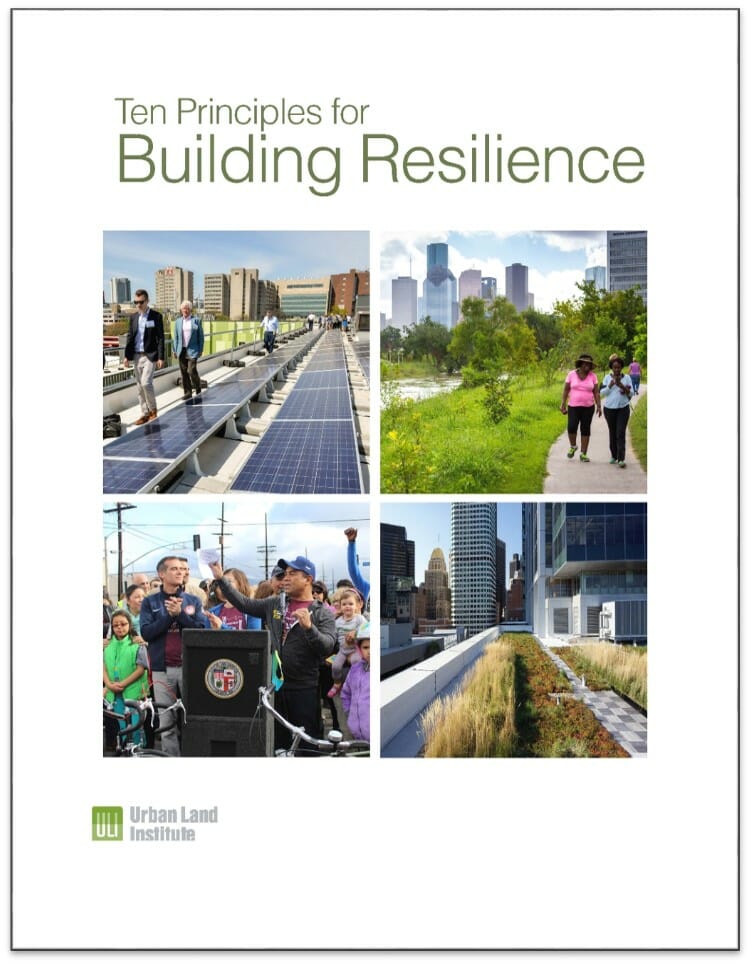Ten Principles for Building Resilience
 Ten Principles for Building Resilience is a 2018 ULI publication which summarizes the key themes posed by ULI’s resilience work in the years since Hurricane Sandy, with a particular focus on ULI’s resilience-focused Advisory Services work. ULI has a long history of helping communities respond to the rebuilding challenges posed by disasters, as well as determine strategies for more resilient land use and development approaches in advance of disasters.
Ten Principles for Building Resilience is a 2018 ULI publication which summarizes the key themes posed by ULI’s resilience work in the years since Hurricane Sandy, with a particular focus on ULI’s resilience-focused Advisory Services work. ULI has a long history of helping communities respond to the rebuilding challenges posed by disasters, as well as determine strategies for more resilient land use and development approaches in advance of disasters.
The report considers the economic, environmental and social factors which contribute to resilience, and how the concept of resilience translates to the private sector, municipal decision-makers, and communities. Ten Principles for Building Resilience equips ULI members, city officials, city leaders and the public to address vulnerabilities and enhance resilience as relevant to their communities, real estate projects and broader civic involvement.
The Ten Principles include:
- Understand vulnerabilities
- Strengthen job and housing opportunities
- Promote equity
- Leverage community assets
- Redefine how and where to build
- Build the business case
- Accurately price the cost of inaction
- Design with natural systems
- Maximize co-benefits
- Harness innovation and technology
Ten Principles was developed through a ULI member workshop in summer 2017. The workshop included 15 ULI member leaders who had served on resilience-focused Advisory Services Panels and other Urban Resilience program activities over the past four years. The members attending the workshop formulated the ten principles, which are illustrated in the report with on-the-ground examples from Advisory Services panels or TAPs.
ULI’s Urban Resilience Program would like to thank the Kresge Foundation and the New York Community Trust for supporting this publication, the Ten Principles for Building Resilience workshop, and the associated resilience Advisory Services Panels and Technical Assistance Panels.